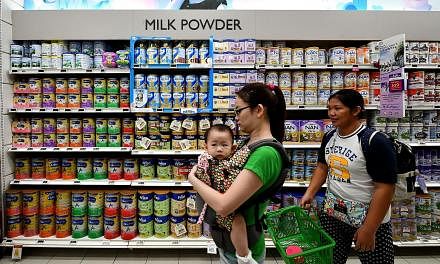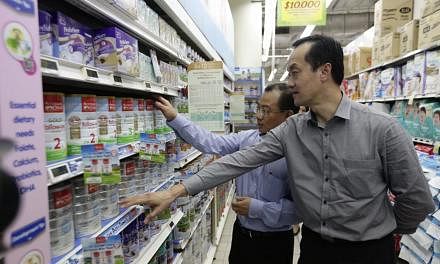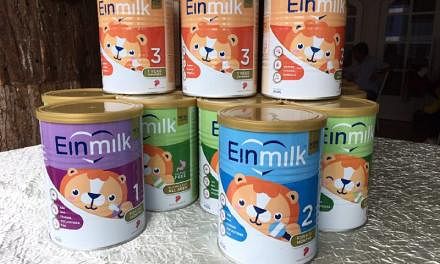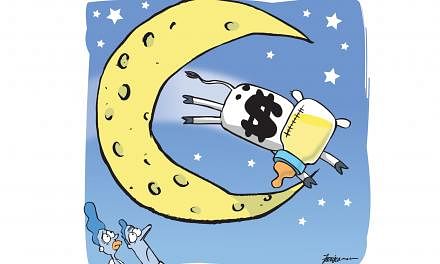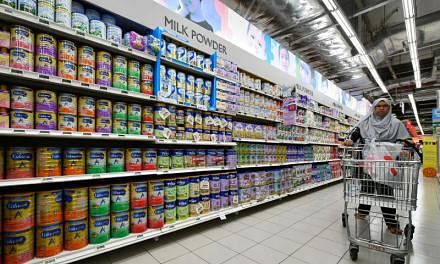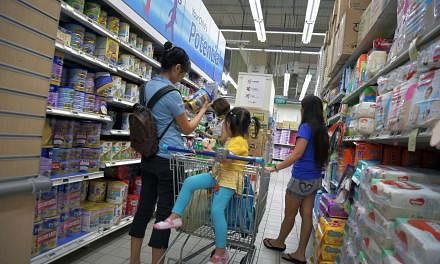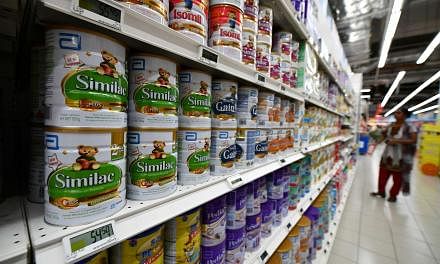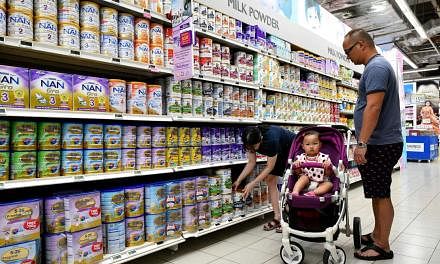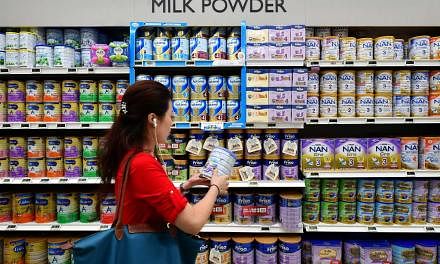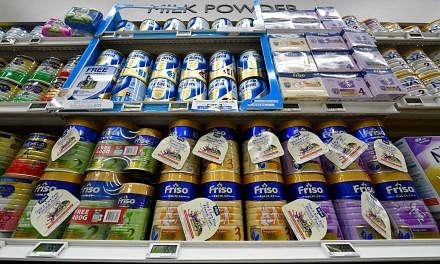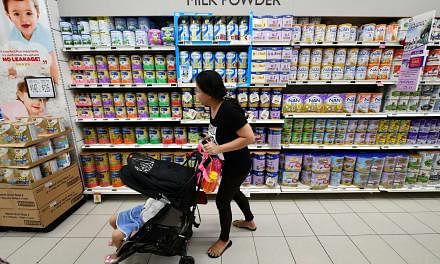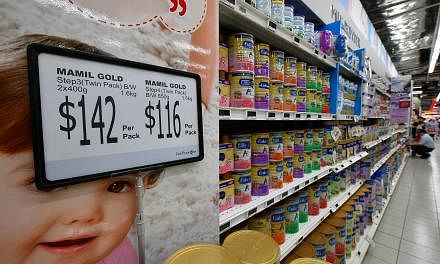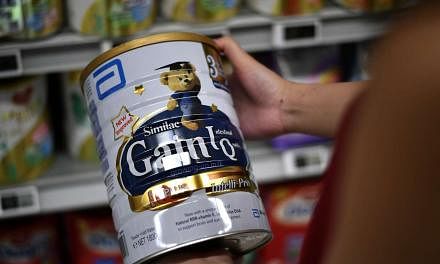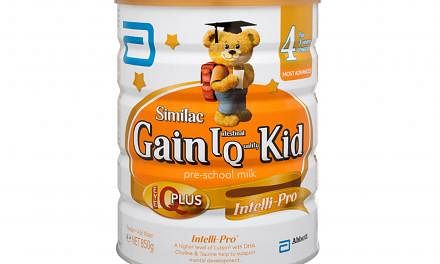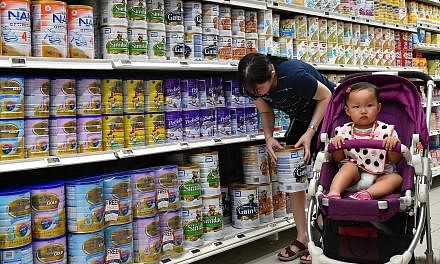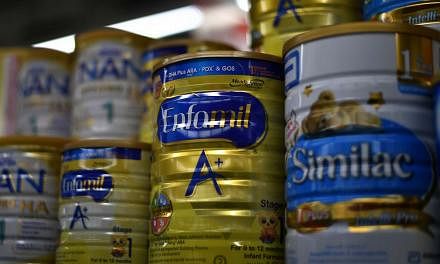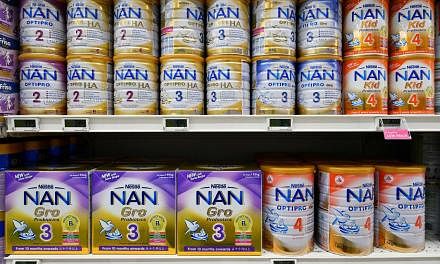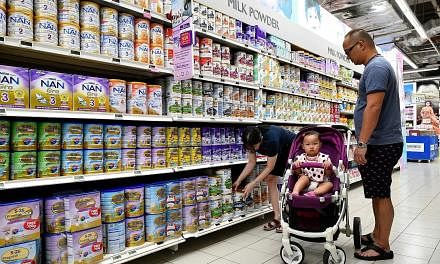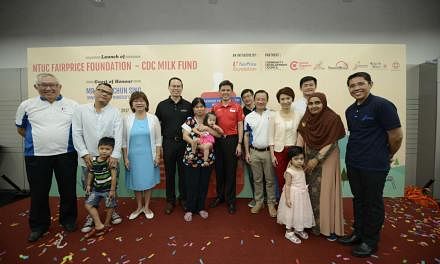Formula milk companies here have rarely violated the code of ethics on the sale of their infant formula milk products for children below six months of age.
The Sale of Infant Foods Ethics Committee Singapore (Sifecs), administered by the Health Promotion Board, receives about 40 to 50 instances of feedback each year. Of these, five to 10 were verified to have violated Sifecs' code.
Among the recent violations, most involved "third parties" and not milk companies, said Sifecs chairman Ho Lai Yun, who revealed the figures in response to queries from The Straits Times.
Formula milk companies have come under the spotlight recently, as a report by the Competition Commission of Singapore released last month found that they had engaged in "aggressive" marketing tactics, including inducements to private hospitals. Such practices have entrenched brand loyalty and helped propel formula milk prices here to among the highest in the world.
The Sifecs code, last revised in 2011, has guidelines on the marketing and distribution of breast milk substitutes, including formula milk powder for infants aged up to six months.
In response to the report's findings, Sifecs said that it will extend the code to formula milk for infants up to 12 months of age. The latest review of the code started last November and is likely to be completed by the end of this year.
Adherence to the code is considered obligatory, but there are no penalties if someone breaches it.
-
Infant-milk regulation
Long before the current public debate over the high prices of infant formula milk and manufacturers' aggressive marketing practices, two regulatory bodies were set up to guide and evaluate these practices:
In 1979, The Sale of Infant Foods Ethics Committee Singapore (Sifecs) was set up to guide the marketing practices of the industry, and "protect and promote" breastfeeding.
In 2012, the Singapore Infant Food Industry (Sifi) Self-Regulatory Committee was set up to evaluate the marketing practices of its signatories - six major local formula milk firms.
Sifi is a working group under the Asia Pacific and Young Child Nutrition Association, whose goals include ensuring that the industry adopts standards that are reflective of the requirements of countries they operate in.
Sifecs drew up the Code of Ethics on the Sale of Infant Foods in Singapore, which has been revised thrice since 1981 and is undergoing another review that started last year. It is administered by the Health Promotion Board and is chaired by Professor Ho Lai Yun of KK Women's and Children's Hospital.
Sifecs members usually serve for a two-year term and meet twice a year to go through complaints and violations, and to clarify or update the code. The group has an advisory member from the Agri-Food and Veterinary Authority, and 14 other members, including the Breastfeeding Mothers Support Group. Another seven formula milk companies are industry members.
Six of those firms sit on the Sifi committee, which they take turns to chair each year. This year, it is led by Nestle. Complaints may reach Sifecs or Sifi. Both groups said errant parties usually comply after being told of a violation.
Priscilla Goy
Professor Ho, who is from the child development department at KK Women's and Children's Hospital, said: "All complaints that Sifecs receives will be investigated immediately. Errant companies will be called up by the committee and given advice on the violations. Milk companies usually comply upon notification of the violation."
He added: "In recent years, there have not been cases where there is serious violation of the code. Most of the recent violations involved third parties, not milk companies."
For instance, he said some retailers breached guidelines about how products should be displayed or promoted. The code states that point-of-sale materials are not allowed on shelves that contain infant formula milk products for infants aged up to six months.
The Singapore Infant Food Industry Self-Regulatory Committee comprises the six major formula milk manufacturers here and was set up to evaluate their marketing practices. It is guided by the Sifecs code among others, and is involved in the code's current review.
Ms Venetta Miranda, who heads its secretariat, said that self-regulation is effective as the companies, which are competitors, are quick to point out alleged violations.
She also stressed that the milk formula tin labels must be approved by Sifecs and the Agri-Food and Veterinary Authority.
While the code bars financial inducements to hospitals, clinics and retail pharmacies to promote products for infants up to six months, payments and sponsorships by manufacturers to private hospitals for taking part in milk rotation programmes are not in violation, said Ms Miranda.
Consumers Association of Singapore president Lim Biow Chuan said he hopes to see the Sifecs code enhanced to cover all advertising and sponsorship arrangements. Mr Lim, who is also the Mountbatten MP, added: "The committee should also be empowered to enforce against non-compliance of the code."

